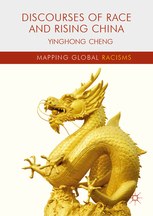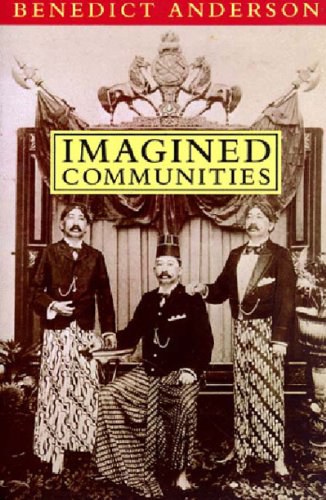亦師亦友亦敵 豆瓣 Goodreads
作者:
王柯
香港中文大學出版社
2020
- 1
近代的中日關係史,是一部充滿衝撞、糾結和廝殺的歷史。日本對華侵略曾經給中國人民帶來巨大的災難,許多中國人至今仍視日本為「中華民族」不共戴天的仇敵。然而,
王柯教授在本書中以宏觀視野,觀察到一幅遠比這複雜的圖景:對近代中國來說,日本事實上扮演了亦師、亦友、亦敵的三重角色。
近代中國的思想家們,通過日本學習到建設國家的方法,就是民族主義。此後,兩國領導人因應立場和利益的變化,隨時調用民族主義作為工具,在敵人、朋友之間變換角色;在缺乏統治正當性的時候,也樂於利用民族主義思想,來強化人民的集體意識。讀者可以從《亦師亦友亦敵》所提供的個案及線索,以多樣化的角度和層面,審視兩國民族主義帶來的問題。
以2015 年問世之《民族主義與近代中日關係:「民族國家」、「邊疆」與歷史認識》為基礎,本書經重新校訂並新增五篇文章,主題包括「民族西來說」思潮、「血緣民族論」話語、俄國十月革命思想的影響、夾縫中的日本華僑的身份認同、日本帝國主義下的「伊斯蘭共同體」構想等。王柯教授繼續深研第一手歷史文獻及新近研究,條分縷析,更進一步探討近代日本和中國先後醖釀民族主義,以及互相交手的來龍去脈。
---------------------
書評 / 推薦
王柯教授指出近代日本之於中國兼有朋友、老師和敵人多重角色,在近代中國思想史研究中,應當格外重視日本的影響。他特別強調,近代日本「單一民族國家」的思想給兼有滿蒙回藏漢苗多民族的中國從傳統帝國到現代國家轉型,帶來了種種啟示、問題和麻煩,反過來也影響了日本對中國的政策、理解和觀感。作者在日本學界多年,對近代日本歷史和文獻非常熟悉,這一觀察角度十分重要,有關國家、邊疆和民族問題的討論,也相當有啟迪意義。
──葛兆光(復旦大學文史研究院院長)
中國和日本這兩個亞洲強國,關係陰晴不定,近年更因為領土主權爭議鬧得不可開交,對立意味濃烈。雖然中日在戰略關係上屢有競爭,但兩者世界觀及民族主義原來擁有極大淵源。近代中國向明治日本求師複製改革經驗,不但引進現代科技,而且從中模仿「單一民族國家」思想,改變中國的「邊疆」意識、影響國家建設過程,造成始料不及的效果,延續至今。王柯教授聚焦探討兩國民族主義觀的發展及其影響,是當代東亞研究不可或缺的一環。
──沈旭暉(香港中文大學社會科學院副教授)
王柯教授在本書中以宏觀視野,觀察到一幅遠比這複雜的圖景:對近代中國來說,日本事實上扮演了亦師、亦友、亦敵的三重角色。
近代中國的思想家們,通過日本學習到建設國家的方法,就是民族主義。此後,兩國領導人因應立場和利益的變化,隨時調用民族主義作為工具,在敵人、朋友之間變換角色;在缺乏統治正當性的時候,也樂於利用民族主義思想,來強化人民的集體意識。讀者可以從《亦師亦友亦敵》所提供的個案及線索,以多樣化的角度和層面,審視兩國民族主義帶來的問題。
以2015 年問世之《民族主義與近代中日關係:「民族國家」、「邊疆」與歷史認識》為基礎,本書經重新校訂並新增五篇文章,主題包括「民族西來說」思潮、「血緣民族論」話語、俄國十月革命思想的影響、夾縫中的日本華僑的身份認同、日本帝國主義下的「伊斯蘭共同體」構想等。王柯教授繼續深研第一手歷史文獻及新近研究,條分縷析,更進一步探討近代日本和中國先後醖釀民族主義,以及互相交手的來龍去脈。
---------------------
書評 / 推薦
王柯教授指出近代日本之於中國兼有朋友、老師和敵人多重角色,在近代中國思想史研究中,應當格外重視日本的影響。他特別強調,近代日本「單一民族國家」的思想給兼有滿蒙回藏漢苗多民族的中國從傳統帝國到現代國家轉型,帶來了種種啟示、問題和麻煩,反過來也影響了日本對中國的政策、理解和觀感。作者在日本學界多年,對近代日本歷史和文獻非常熟悉,這一觀察角度十分重要,有關國家、邊疆和民族問題的討論,也相當有啟迪意義。
──葛兆光(復旦大學文史研究院院長)
中國和日本這兩個亞洲強國,關係陰晴不定,近年更因為領土主權爭議鬧得不可開交,對立意味濃烈。雖然中日在戰略關係上屢有競爭,但兩者世界觀及民族主義原來擁有極大淵源。近代中國向明治日本求師複製改革經驗,不但引進現代科技,而且從中模仿「單一民族國家」思想,改變中國的「邊疆」意識、影響國家建設過程,造成始料不及的效果,延續至今。王柯教授聚焦探討兩國民族主義觀的發展及其影響,是當代東亞研究不可或缺的一環。
──沈旭暉(香港中文大學社會科學院副教授)



